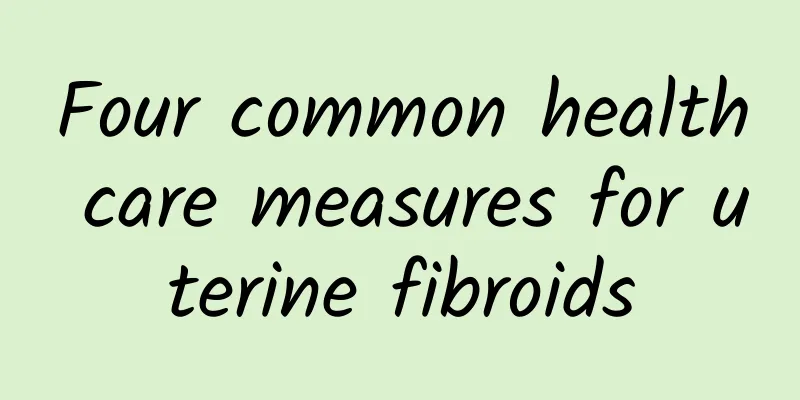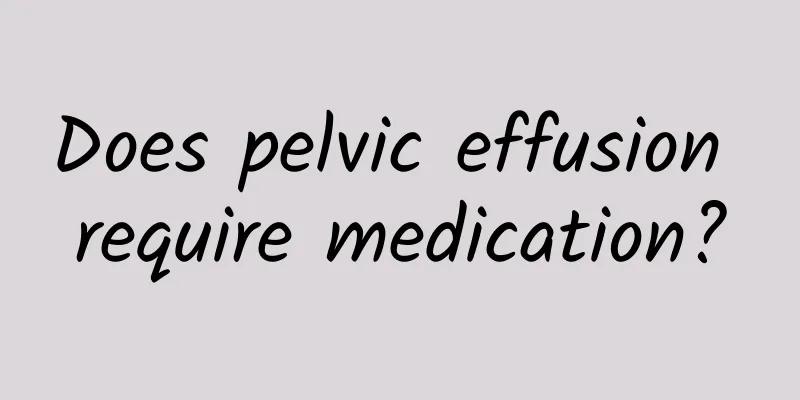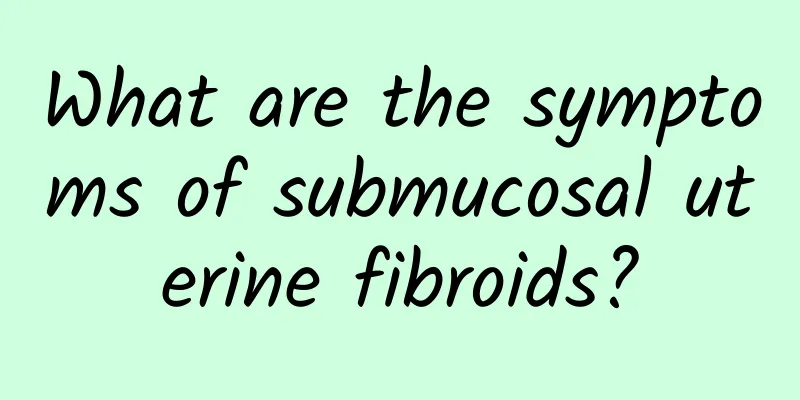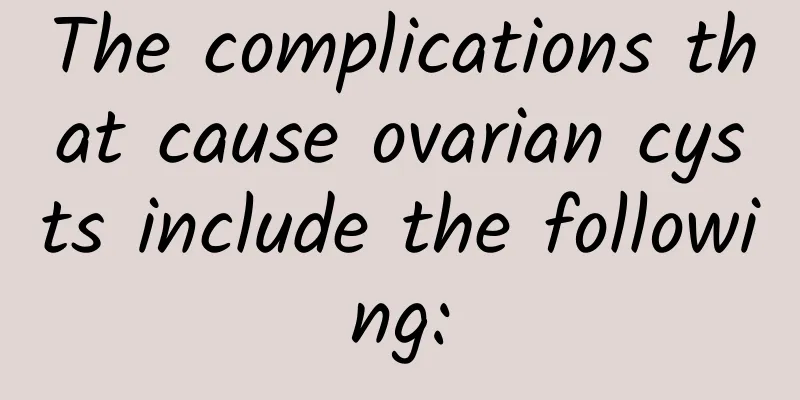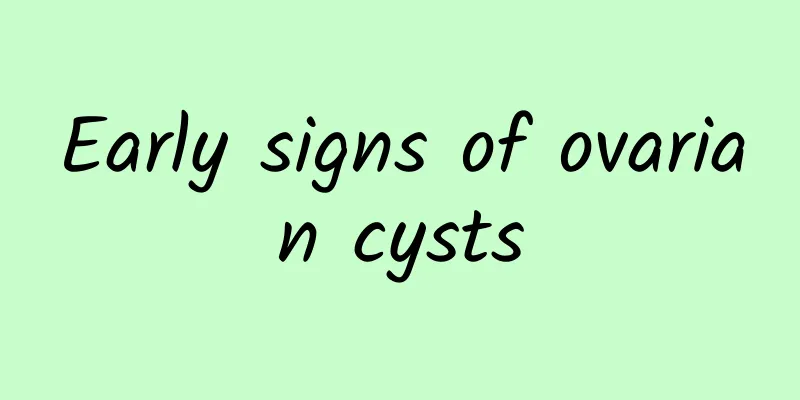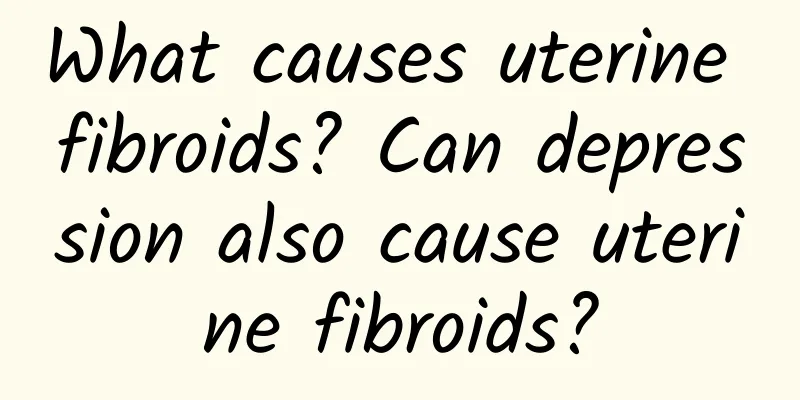What are the sequelae of uterine fibroids?
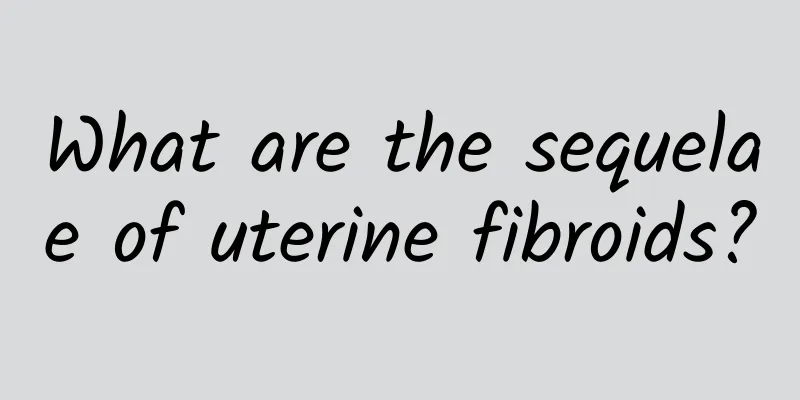
|
Uterine fibroids can cause sequelae such as abnormal menstruation, infertility, abdominal pain, anemia, etc. In severe cases, they may cause compression symptoms of surrounding organs. Therefore, it is necessary to seek medical attention as soon as possible and take personalized treatment measures according to the condition. The main treatment methods include drug therapy, surgical treatment and life management. 1. Abnormal menstruation and anemia One of the most typical sequelae of uterine fibroids is menorrhagia, which may manifest as increased menstrual flow, prolonged menstrual period or frequent intermenstrual bleeding. Long-term menstrual abnormalities can easily cause iron deficiency anemia, leading to symptoms such as pale complexion, dizziness, and fatigue. Recommendations: Mild to moderate menstrual abnormalities can be relieved by oral contraceptives, mifepristone and other drugs; if bleeding is required, drugs such as hemostatics or acetylglutamine can be used; those with anemia should take iron supplements. Adjust the diet structure and eat more iron-rich foods such as animal liver and red meat. 2. Abdominal pain and infertility Some patients may experience lower abdominal pain or discomfort in the lumbar region due to uterine fibroids compressing the nerves or causing uterine contractions, which may even affect conception or cause early miscarriage. Recommendation: For pain or infertility problems, drugs such as gonadotropin-releasing hormone agonist GnRH-a can temporarily shrink fibroids; minimally invasive surgery such as hysteroscopy or laparoscopy to remove fibroids is recommended for women who are planning to have a baby. In addition, if the location of the fibroid does not affect conception, actively try to prepare for pregnancy under the guidance of a doctor when the condition is stable. 3. Symptoms related to compression of peripheral organs Larger fibroids may compress the bladder, rectum or ureters, causing frequent urination, difficulty urinating, constipation or even hydronephrosis. Recommendation: For cases with significant symptoms and health-threatening conditions, uterine artery embolization, conservative removal of fibroids, or total abdominal hysterectomy can be considered. Choose the most appropriate treatment based on the patient's age and condition. At the same time, improving lifestyle, such as avoiding sitting or standing for long periods of time, exercising moderately and controlling weight can alleviate the growth of fibroids to a certain extent. Patients with the above sequelae need to receive scientific treatment under the guidance of a doctor and have their uterus checked regularly. Regardless of whether the fibroids have caused obvious symptoms, female friends are advised to pay attention to their menstruation and lifestyle changes, complete regular gynecological examinations, and deal with problems as soon as possible to prevent further complications. |
<<: Side effects of embolization therapy for adenomyosis
>>: Can someone with an ovarian cyst get pregnant?
Recommend
The harm of premature ovarian failure to the uterus
The harm of premature ovarian failure to the uter...
What are the main manifestations of prevention of cervical hypertrophy?
Cervical hypertrophy can be said to be very commo...
Introduction to Hyperprolactinemia Hospital
The introduction of the hospital for hyperprolact...
How much does secondary surgery for cervical precancerous lesions cost?
The cost of treating cervical precancerous lesion...
I still have dysmenorrhea after 12 days of menstruation
If you still have dysmenorrhea after 12 days of m...
Knowing the early symptoms of cervical erosion can speed up the cure
In recent years, cervical erosion has become a co...
What are the causes of physiological hyperprolactinemia?
Hyperprolactinemia is caused by various reasons t...
How to treat cervicitis
Cervicitis is one of the common gynecological dis...
Obesity is a chronic disease! 4 Key Dietary Interventions for Treating Obesity, Losing Weight Without Losing Health
I often meet people who come for health check-ups...
How to exercise correctly for cervical erosion
How to exercise correctly for cervical erosion? I...
The King of Herbs, American Ginseng, Can Effectively Relieve Cancer Fatigue
In traditional Chinese medicine, ginseng is known...
Do depressed women have a higher chance of developing multiple uterine fibroids? Common causes of multiple uterine fibroids
The common cause of uterine fibroids is a common ...
Taiwan is Asia's fat husband father refuses big "belly"
Chiu Shu-ti, director of the National Health Bure...
Why do I have back pain during menstruation?
Some women experience back pain during menstruati...
What are the dangers of bacterial vaginosis to men?
In recent years, more and more female friends hav...
